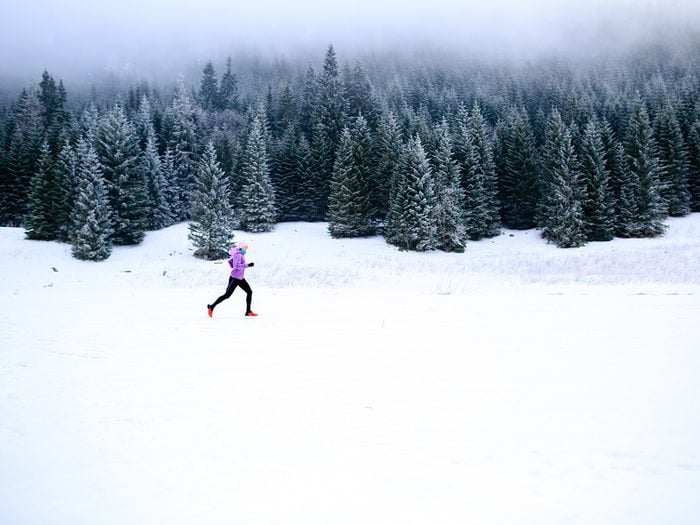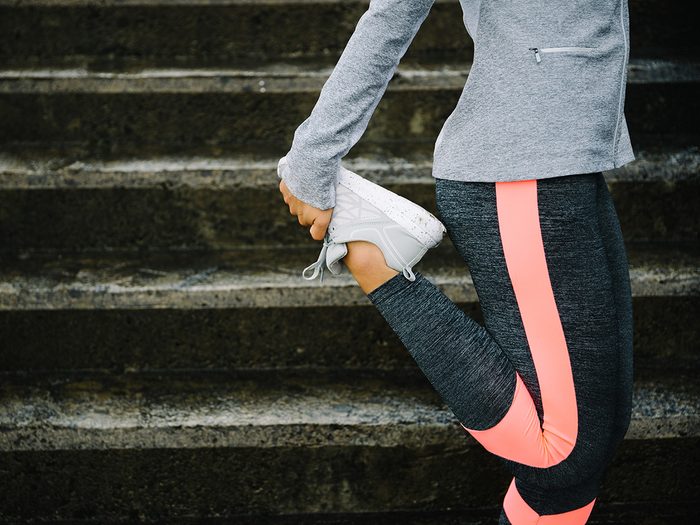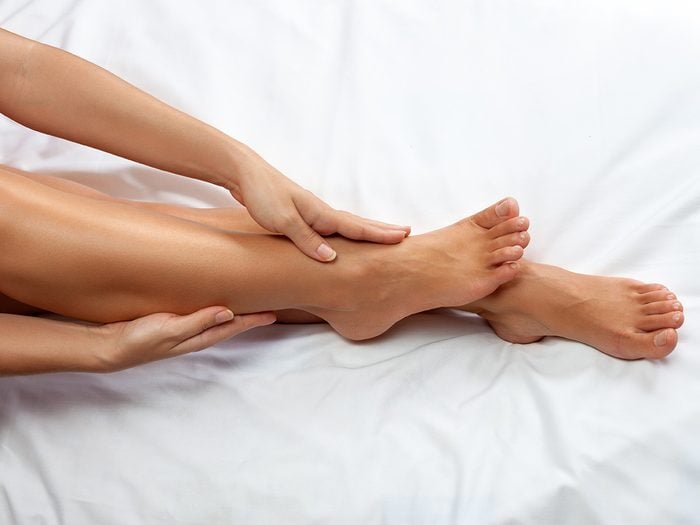
Cooler temps boosts your brain
Colder temperatures help people think clearly. Research shows that people perform tasks better when the room temperature is set at a cooler setting than a warmer one. What’s more, other research shows that people are less inclined to tackle cognitive problems in the summer, as opposed to winter, because the summer uses more glucose that’s needed for mental processes. So, getting outdoors for a brisk walk to a local coffee store in the wintertime could give you your next big idea for a work presentation.
Check out these healthy habits that boost your brain and mental health.

Cold weather might help you burn calories
When it’s cold, your body works harder to maintian your core temp. “Our bodies use a considerable amount of energy to keep us warm, and humidify the air we breathe when we’re out in the cold,” explains Stacy Tucker, RN, natural health expert, founder of Almeda Labs.

It increases brown fat
Most fat in human beings appears whitish in color, while brown fat is the mitochondria-packed fat cells that burn energy and produces heat in the body. “It was thought that only babies had brown fat, however, a study found that adults have some brown fat, and people with lower body mass index (BMI) tended to have a higher content of brown fat,” Tucker says. Research has shown that when men are exposed to cooler temps, they have an increase in brown fat — and a corresponding boost in metabolism.

It improves allergies
If you have outdoor allergies, good news! Pollen counts are virtually nonexistent in cold and snowy weather. If you have indoor allergies, however, you’re not in the clear, because mold and dust mite allergies can be worse during the winter, especially if you’re spending more time indoors, says Tucker.

Winter can lower inflammation
You know how ice packs are used to decrease swelling and pain after an injury? Well, you might notice your joints feeling less swollen or puffy in winter, because the cold air acts like a natural ice pack to decrease inflammation, explains Tucker.
This is the hard truth about osteoarthritis and how you can get relief.

It can lower risk of diseases
Sure, you might be more likely to catch a cold, but you’re in the clear for several diseases and viruses that are more prevalent in warmer temps. That’s because pesky mosquitoes hibernate during winter, which translates into a decrease of mosquito-borne diseases, including Zika, West Nile virus, dengue fever, and malaria during the winter season, says Tucker.
But when bug bites are an issue, these natural home remedies can help.

You’ll sleep better
Your body’s core temp naturally drops when you’re trying to sleep; this process can take up to two hours in the heat of summer but is much faster in winter, says Tucker. Plus, one of the upsides of shorter days is darker mornings, so you can naturally sleep in later, no blackout curtains required. If your bedroom temperature is between 60 and 67 degrees, you might burn more calories, too.

It can help you fight infections
Yes, you might get more colds during the winter (not so great), but you are actually better primed to kick your immune system into gear and fight the infection more effectively. Studies have shown that the human immune system can be activated when exposed to the cold, and this enhances someone’s ability to fight infections, explains Tucker.

It can rejuvenate skin
Moderately cold temperatures could be good for skin’s health because it constrains blood vessels in the skin. This makes the vessels less prone to redness and swelling, as a result of a reduction in blood flow, explains Tucker. Plus, you tend to produce less oil and sebum in the winter, so you may have fewer breakouts. Find out the things a facialist recommends in winter to keep skin healthy.

It can better your ticker
Cold weather can actually do your heart some good when you’re bracing it for your winter workouts outdoors. Cold weather makes working out a fun and challenging activity, and the heart will have to pump more oxygenated blood to not only compensate for the activity but also to ensure that the body maintains a warm enough temperature to stay within balance and to avoid any risks from a drop in temperature. What’s more, “exercising in the winter makes heart muscles stronger,” explains Tucker. However, if you have heart disease, you should be cautious when exercising outdoors in cold weather.
We’ve got 13 great ideas for staying active outdoors and enjoying the Canadian winter.
